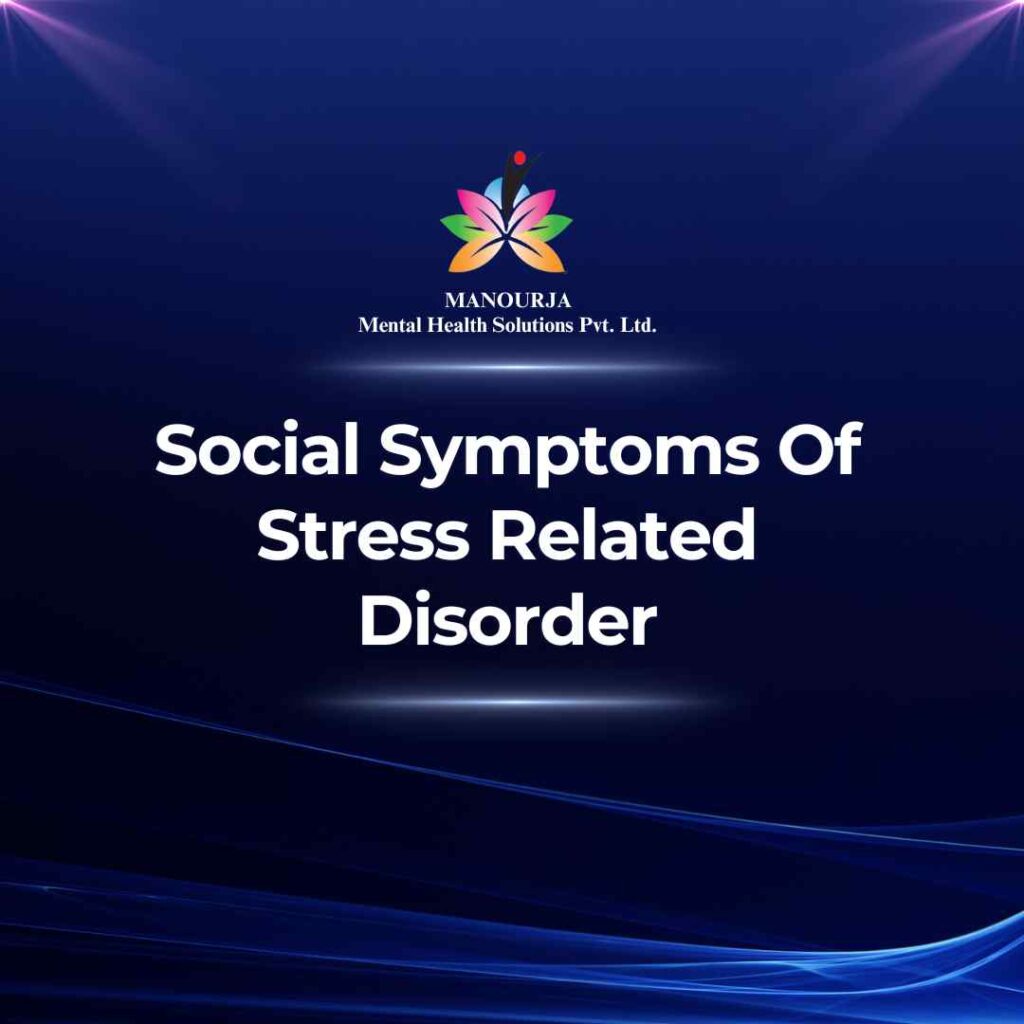Social Symptoms of Stress Related Disorder

When someone is grappling with a stress-related disorder, the effects can ripple out, deeply affecting their social life and relationships.
Here’s a closer look at how these symptoms can manifest:
- Pulling Away from Friends and Family: Often, one of the first signs of a stress-related disorder is withdrawing from social interactions. People might skip gatherings, appear less communicative, and spend more time alone. This isn’t just about needing space; it’s a deeper feeling of being unable to engage or feeling overwhelmed by social situations.
- Tensions in Personal Relationships: As stress mounts, it’s common for people to become irritable or have mood swings. These changes can strain relationships with partners, family members, and friends, leading to misunderstandings and conflicts that wouldn’t normally occur.
- Struggling at Work or School: Stress-related disorders can make it hard to focus, leading to a drop in performance. Whether it’s slipping grades or missed deadlines at work, the decline can create additional stress and worsen the sense of being overwhelmed.
- Challenges in Building New Connections: For those experiencing high levels of stress or anxiety, initiating and maintaining new friendships or professional relationships can feel daunting. They might fear judgment or feel they aren’t interesting or worthy of new connections, further isolating themselves.
- Relying on Unhealthy Coping Mechanisms: In social settings, some might turn to alcohol, smoking, or other substances as a way to manage their stress or anxiety. While this might provide a temporary escape, it can complicate interactions and lead to reliance on these methods.
- Avoiding Triggers: People might start avoiding places, events, or activities that remind them of traumatic experiences or amplify their stress. This avoidance can limit their world and reduce their interaction with others, making it harder to maintain a support network.
- Communicative Disconnect: You might notice changes in how someone communicates. They could become more withdrawn, less engaged in conversations, or overly focused on their worries when they do talk, making interactions feel one-sided or strained.
- Feeling Misunderstood: A common feeling among those with stress-related disorders is that others don’t truly understand their struggle or aren’t supportive. This perception can be isolating and discourage them from sharing their feelings or seeking help.
- Responsibility Neglect: The overwhelming nature of stress and its symptoms can lead someone to neglect their responsibilities. This isn’t out of laziness or lack of interest; rather, it’s a sign of how much they’re struggling to cope with their condition.
Addressing these social symptoms involves recognizing the distress signals and understanding the profound impact stress-related disorders can have on one’s social life. Effective treatment may include therapeutic strategies aimed at enhancing interpersonal skills, managing symptoms, and improving communication. Support from loved ones can also be pivotal in helping someone navigate the complexities of their condition, reinforcing the social bonds that stress seeks to undermine.
At MANOURJA, we believe in the transformative power of counseling. Our experienced therapists offer a safe and supportive space where you can explore your thoughts, emotions, and challenges. Through personalized counselling sessions, we’ll work together to develop coping strategies, build resilience, and achieve lasting positive change. Discover the path to a healthier, happier you with MANOURJA counselling services.
MANOURJA Rehabilitation Services
At MANOURJA, we’re dedicated to helping you in rebuild your life, after difficult times. Our rehabilitation services focus on understanding what you need to move forward, whether you’re recovering from addiction, trauma, or any psychological – social challenges. We create personalized plans, that are all about helping you, regain your strength and find hope again. With a caring team by your side, you’ll have the support to make real progress and take steps toward a brighter, healthier future.
